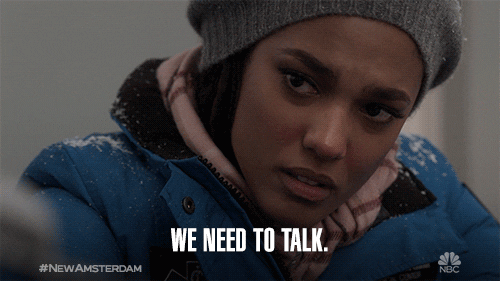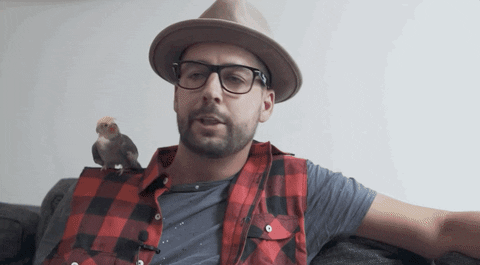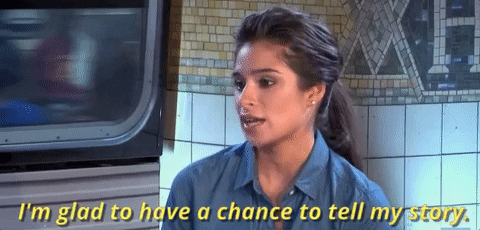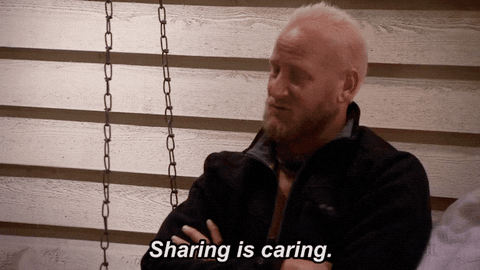So you're ready to talk about climate change with someone you know.

You've thought about what to say. Now it's about getting through the conversation. You'll need to follow some tried and tested strategies to get your message across.
1. Make It A Conversation, Not A Lecture

Be a friend, not a professor!
The more you can make the conversation interactive the better — ask questions, and listen to who you're talking to, even if you don’t agree with them. Connect with what matters to them, or to values you share.
Our worldviews, values, and social norms dictate how we receive information and apply it to our own lives. Understanding your listener’s perspective will allow you to tailor the discussion so it's relatable to them.
2. Talk About The Real World

Don’t lead with facts and figures.
Statistics and complicated science can overwhelm and also backfire.
You can talk about climate change in terms of more realistic, tangible things that are already happening on the landscape. Speak about positive advancements that are happening right now, benefiting both the climate and our health, economy, and wellness. Build trust that a low-carbon future CAN happen.
3. Emphasize Shared Values
Values are simply another word for what people care about.
Remember that people’s attitudes towards facts are based on their values. They seek out facts that support the values orient their worldview.
Emphasize what you have in common and what you both care about. Get to know the other person’s values and try to find common ground. Maybe you both like sushi — talk about how fish stocks are threatened by changing temperatures.
Subscribe for more quick bites of learning delivered to your inbox.
Unsubscribe anytime. No spam. 🙂
4. Emphasize The Co-Benefits Of Climate Action

Acting on climate change can create a pathway to a better, more just, healthier, and more equitable future.
Universally, people care about their personal safety, and that of their family and communities, and improving their quality of life. They don’t necessarily identify as environmentalists and have other ethics guiding how they act and make decisions.
Sometimes in a conversation about climate change, you might not even say “climate change” and focus instead on how green energy can provide good, well-paying jobs, or how addressing air pollution can also help reduce asthma episodes.
5. Tell An Authentic Human Story

Most people understand the world through anecdotes and stories, rather than statistics and graphs.
So tell YOUR story and why you personally care about climate change!
Remember when you wrote your personal narrative earlier in the course (see the "Take Action" section in this Byte)? This is where it’s useful!
6. Focus On The Solutions, Not The Causes

Focusing on the causes of climate change can alienate people.
This can result in anxiety, guilt, and hopelessness. In order to motivate people towards action, we must help them see that solutions are possible, and these solutions are happening now.
Don’t simply invoke fear. Instead, give the person something to do about climate change — help them have hope!
Take Action

Climate conversations are doors, not walls.
You might not change minds about climate change overnight, but you might get through to people on a few points.
Even if you make them aware of something they didn't know before, they'll be one step closer to seeing things from a different perspective, and one step closer to action.
To help you prepare for your next climate change conversation:
Click the links below for more Climate Communications Bytes!
Byte 1: 7 things people get wrong about climate change
Byte 2: 6 myths we need to confront if we want a clean energy future
Byte 3: Why we need a new approach to climate change conversations
Byte 4: Why aren't people more worried about climate change?
Byte 5: Can I talk to people about climate change even if I'm not an expert?
Byte 6: 5 things to consider before you start a conversation about climate change
Byte 7: 6 ways to have better conversations about climate change
Byte 8: What is the climate change “spectrum of engagement”?
Byte 9: How will the "messaging triangle" help me talk to people about climate change?

These Bytes were created with the assistance of Generation Climate.

Your feedback matters to us.
This Byte helped me better understand the topic.

